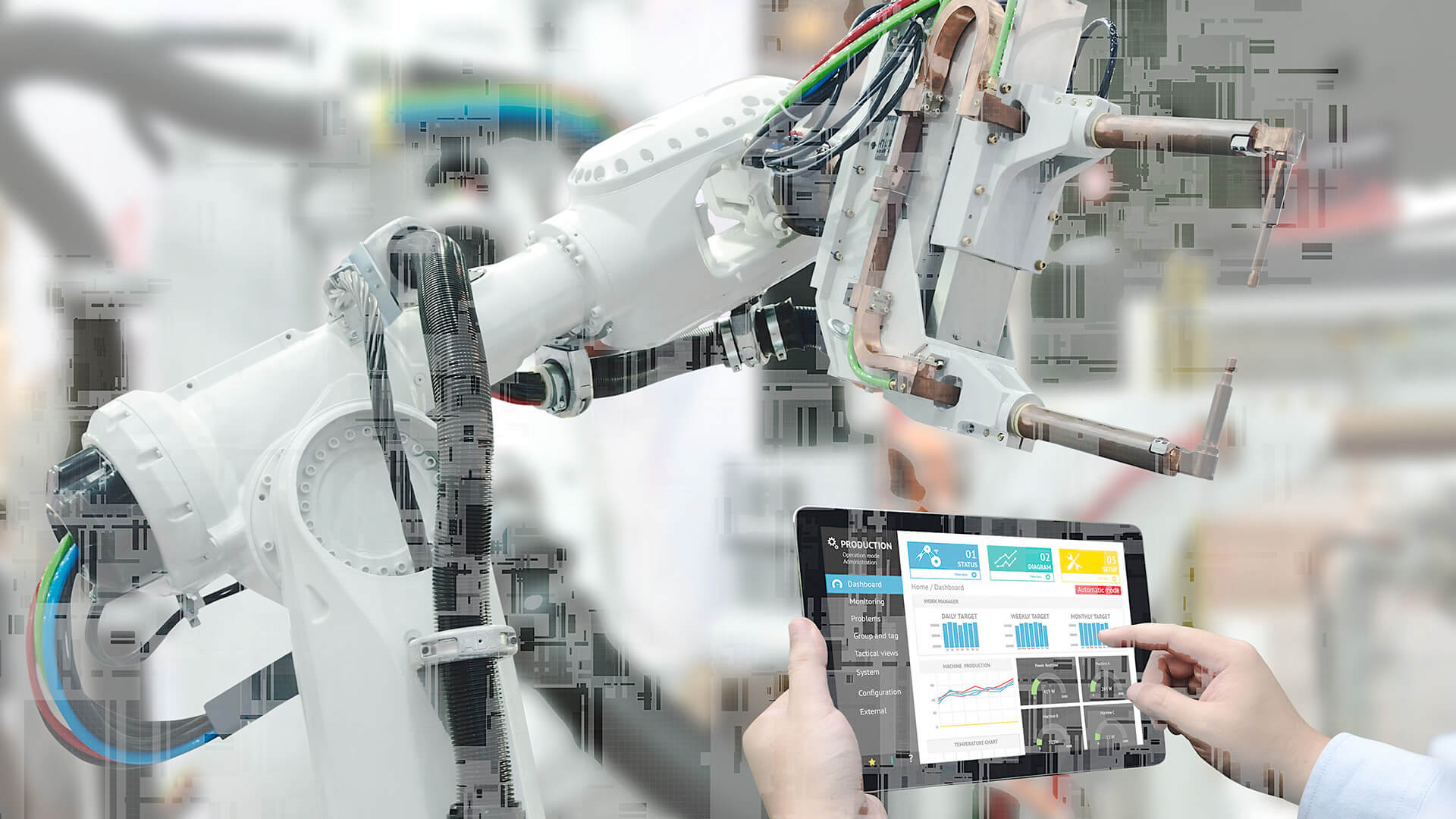
Customizing AI for business applications is akin to tailoring a bespoke suit; it needs to fit the unique contours and nuances of each industry. In today’s diverse and multifaceted business environment, a generic, one-size-fits-all approach falls short. The demand for AI solutions that are finely tuned to the specific needs of different sectors is not just a preference but a critical requirement for success.
Envision a financial analyst utilizing a customized AI tool for making precise, data-driven market predictions, or a healthcare professional employing an AI system for accurate, rapid medical diagnoses. In these scenarios, the level of AI specialization transforms from being a mere luxury to an absolute necessity.
Customizing GPT, a leading AI model, extends beyond mere technical tweaks. It involves a comprehensive process of aligning the AI with the unique rhythms, languages, and demands of various sectors. This process ensures that the AI system is not just an external tool but an integrated part of the sector it serves.
Whether it’s healthcare, finance, retail, or manufacturing, each industry presents its own set of challenges and opportunities. A well-customized AI, therefore, speaks the language of the industry, understands its core challenges, and offers solutions that are not only effective but also innovative and forward-thinking.
In healthcare, for example, a customized GPT can interpret medical jargon, understand patient histories, and even stay abreast of the latest research and treatments, thereby assisting healthcare professionals in making more informed decisions. In finance, such an AI can analyze market trends, understand economic indicators, and provide insights that are tailored to the specific investment strategies and risk profiles of the firm.
The customization of AI, especially GPT, thus stands at the crux of marrying technological advancement with industry-specific expertise. It’s about creating a synergistic relationship where AI not only adapts to the industry but also propels it forward, setting new benchmarks in efficiency, accuracy, and innovation. This tailored approach ensures that AI is not just an adjunct to business operations but a driving force in shaping the future of industries.
Retail – Enhanced Customer Engagement
In the dynamic world of retail, the customization of AI can be a game-changer in the way customer engagement is approached and executed. Imagine an AI system that does more than just recommend products based on browsing history. This advanced AI would possess the capability to interpret customer emotions, preferences, and even anticipate needs based on subtle cues.
Such an AI could meticulously analyze shopping patterns, keep abreast of emerging trends, and offer highly personalized suggestions, thereby elevating the shopping experience to unprecedented levels. It’s akin to providing each customer with a personal shopping assistant, one that continuously learns, adapts, and anticipates their evolving preferences. This level of customization could transform the retail experience, making it more intuitive, engaging, and satisfying for the customer.
Agriculture – Precision Farming
In the realm of agriculture, AI can herald a new age of precision farming, an approach that marries traditional agricultural practices with cutting-edge technology. Customized AI tools, tailored for agricultural use, can analyze a wealth of data such as soil health, weather patterns, crop conditions, and even pest activity. This data can provide farmers with real-time insights and actionable advice.
This technology could pave the way for more informed agricultural decisions, leading to higher crop yields, optimized resource utilization, and reduced environmental impact. Envision a scenario where farmers receive specific, tailored advice for each field or crop, effectively turning AI into a knowledgeable partner in the pursuit of sustainable and profitable farming practices.

The Power of Fine-Tuning in AI
The fine-tuning of an AI model like GPT can be compared to refining a skilled artisan’s expertise to suit specific crafts or industries. It involves training the AI with specialized datasets, thereby making it proficient in particular tasks or sectors.
This process is analogous to an experienced chef who, already proficient in the culinary arts, decides to specialize in a specific cuisine like Italian or Japanese. By immersing themselves in the nuances of these cuisines, the chef can create dishes that not only exemplify the cuisine but also resonate deeply with its aficionados.
In a similar vein, fine-tuning GPT with industry-specific data transforms it into a tool that is not just functional but insightful and intuitive for that particular industry. For instance, when equipped with data from customer service interactions in telecommunications, the AI becomes adept in handling industry-specific queries and challenges. When fed with architectural designs and construction parameters, it can assist in creating more efficient and innovative building plans.
Such a tailored AI becomes more than just a tool; it evolves into a specialist, capable of understanding industry jargon, predicting trends, and offering insights with a level of precision and relevance that was previously unattainable. This bespoke approach ensures that AI is not just an add-on to existing processes but a transformative force that redefines industry standards and practices.
Building Knowledge Bases for Accurate AI Responses
Developing a knowledge base for an AI model is akin to creating a highly specialized library, tailored to specific industry needs. This process involves gathering a diverse range of data, information, and insights, forming the foundational knowledge enabling AI to deliver informed and accurate responses.
In the travel industry, constructing a knowledge base means compiling data on travel trends, customer preferences, seasonal impacts, and regional attractions. With such a repository, AI can function like an expert travel consultant, providing personalized recommendations with speed and accuracy that surpass human capabilities. This approach allows travel agencies to offer bespoke travel solutions, enhancing customer experience significantly.
For the education sector, building a knowledge base entails collecting an extensive array of academic content, pedagogical methods, and student feedback. This enables AI to offer tailored learning experiences and teaching assistance, adapting to individual student needs and learning styles.
Teachers can leverage AI insights for a deeper understanding of student learning patterns, customizing their teaching methods for greater efficacy. Additionally, AI can provide real-time feedback to students, fostering a more interactive and responsive educational environment.
These applications demonstrate the transformative impact of a well-developed knowledge base on AI’s functionality in various industries. It’s not just about inputting data; it’s about curating and structuring this data to meet specific industry requirements.
This approach elevates AI from a mere tool to a knowledgeable partner, offering precision and relevance in insights and recommendations. By doing so, AI doesn’t replace human expertise but rather enhances and complements it, leading to more efficient, effective, and personalized outcomes.
Practical Applications and Case Studies
Delving into real-world applications sheds light on the immense potential of AI across various industries. By examining specific case studies, we gain a clearer understanding of how AI revolutionizes industry practices.
Customer Support – Revolutionizing Service Experience
AI’s transformative impact in customer service is undeniable. Picture an AI system trained with extensive customer interactions and in-depth product knowledge. This AI transcends traditional support; it anticipates customer needs and offers personalized recommendations. It efficiently handles routine inquiries, allowing human agents to focus on more complex issues.
Moreover, such AI is capable of interpreting emotional cues in customer tones, enabling empathetic and tailored responses. Retail companies implementing this AI have observed marked improvements in customer satisfaction and operational efficiency. The AI’s ability to streamline customer service processes and enhance the quality of interactions signifies a substantial shift in how customer support is perceived and delivered.
Legal Research – A New Era of Efficiency
In the legal sector, AI, when customized with extensive legal databases, case laws, and statutes, becomes an invaluable asset for legal professionals. This AI goes beyond merely retrieving relevant cases; it is adept at analyzing legal trends, predicting case outcomes, and suggesting effective legal strategies.
Envision an AI capable of processing legal information more rapidly and accurately than an entire team of paralegals. This technology offers quick, in-depth insights, revolutionizing the approach to legal research. Law firms utilizing such AI have reported a significant reduction in research time, which in turn allows lawyers to concentrate more on developing case strategies and enhancing client interactions. This represents a paradigm shift in legal research, heralding a new era of efficiency and precision in the legal field.

Challenges and Considerations
Embarking on the journey of customizing AI involves navigating a series of challenges and critical considerations. Understanding these challenges is essential for leveraging AI’s full potential.
Ensuring Data Accuracy and Reliability
At the core of any effective AI system lies the bedrock of accurate and reliable data. The consequences of feeding AI with flawed or inaccurate data are far-reaching, often leading to misguided decisions and unreliable outcomes. Businesses, therefore, must put in place stringent data verification processes. This doesn’t just mean sourcing data from credible sources but also ensuring that it is regularly updated to maintain its relevance and accuracy.
In critical fields like healthcare, the precision of data is paramount. The effectiveness of AI in diagnosing diseases or recommending treatments is heavily dependent on the accuracy of patient data. Any discrepancy in this data can have significant implications, emphasizing the need for rigorous data management practices.
Keeping AI Updated in Evolving Industries
In industries characterized by rapid evolution, such as technology, the relevance of data and trends can quickly diminish. What is pertinent today may become obsolete tomorrow. Hence, it is crucial for AI systems to engage in continuous learning. Regularly updating AI with the latest industry developments, research findings, and emerging trends ensures that it remains effective and relevant.
Take, for instance, digital marketing. Here, AI needs to stay in sync with ever-changing consumer behaviors and advancements in marketing technologies. An AI system that fails to adapt to these changes risks becoming ineffective, underscoring the importance of ongoing updates and learning for AI systems in dynamic industries.
The Challenges and Future of Customized AI
As businesses embrace the advanced capabilities of AI, they inevitably encounter a spectrum of challenges, particularly in ensuring data accuracy and the need for continuous updates. The path to leveraging AI effectively is nuanced, requiring a balanced approach between ambition and meticulous attention to detail.
Ensuring Accuracy and Reliability
A critical challenge in the deployment of AI is ensuring the accuracy and reliability of the data used. This is particularly crucial when fine-tuning AI models or building industry-specific knowledge bases. Inaccuracies in data can significantly misguide AI responses, leading to flawed outcomes. Take healthcare, for instance, where the precision of patient data is paramount. Any error in this data can lead to incorrect diagnoses or treatment recommendations, potentially having severe implications. Regular and rigorous data verification processes are, therefore, essential to maintain the integrity and effectiveness of AI systems.
The Need for Continuous Updates
In fields that are rapidly evolving, such as technology and medicine, the relevance of data and AI models can quickly wane. What is pertinent today might be obsolete tomorrow. This dynamic nature of industries necessitates continuous updates to AI systems, ensuring they stay abreast of the latest developments, research findings, and emerging trends. For example, in the tech industry, AI must be regularly updated to remain effective in a landscape where technologies and consumer behaviors are constantly shifting.

Transformative Impact of Customized AI
Customized AI is not merely about automation; it’s a transformative force in business operations. It involves creating AI models that are intricately tailored to meet the unique challenges and demands of different industries. This customization ranges from enhancing customer experiences in the retail sector to streamlining complex research in legal fields. The applications are as varied as they are impactful, revolutionizing how businesses operate and interact with their customers and data.
Visionary Approach and Meticulous Planning
Adopting AI requires more than just technological ambition. It involves a combination of visionary thinking and precise execution. Businesses must strike a delicate balance between their lofty goals and the practical realities of AI implementation. This balance is key to ensuring that AI remains effective, relevant, and aligned with the industry-specific needs.
Opening Doors to Growth and Innovation
Businesses that integrate AI into their operations are not just utilizing a new technology; they are unlocking opportunities for unprecedented growth, innovation, and service excellence. As we continue to push the boundaries of AI, we are moving towards a future where AI is not just a tool for automation but a bespoke solution, intelligently and uniquely tailored to each sector’s specific needs and challenges. This evolution of AI represents a significant leap forward, not just in technology, but in how we approach and solve complex industry-specific problems. Leverage AI for business success. Inquire today.





